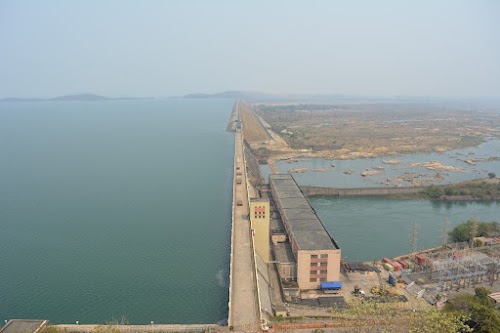
Hirakud Dam
Sambalpur, India
- Capture stunning photographs of the landscape
- Enjoy boating in the reservoir
- Explore Jawahar Minar for panoramic views
- Have a picnic by the lakeside
- Spot migratory birds at the reservoir
- Take a nature walk in the surrounding hills
- Visit the dam and learn its history
Known for:
Description:
Hirakud Dam, one of the world's longest earthen dams, is a majestic structure located in Sambalpur, Odisha, India. Spanning the Mahanadi River, it offers breathtaking views of the vast reservoir and surrounding hills. Visitors can witness the dam's impressive engineering, explore the nearby Jawahar Minar for panoramic vistas, and enjoy boating in the reservoir. The dam's construction has created a vast artificial lake, a haven for various migratory birds and a popular spot for picnics and leisurely outings. The surrounding landscape provides opportunities for nature walks and photography. Hirakud Dam is not only a significant irrigation project but also a prominent tourist attraction, showcasing the harmony between human ingenuity and natural beauty.
History:
The Hirakud Dam project was conceived before India's independence as a solution to the Mahanadi River's devastating floods and to harness its potential for irrigation and power generation. Construction began in 1948 and was completed in 1957. It was a monumental undertaking, involving the displacement of thousands of people and the submergence of vast tracts of land. The dam's construction was a symbol of independent India's ambition for development and self-sufficiency. Over the years, the Hirakud Dam has played a crucial role in flood control, irrigation, and power generation, significantly impacting the socio-economic landscape of the region. It stands as a testament to the engineering prowess of the time and continues to serve as a vital lifeline for Odisha.